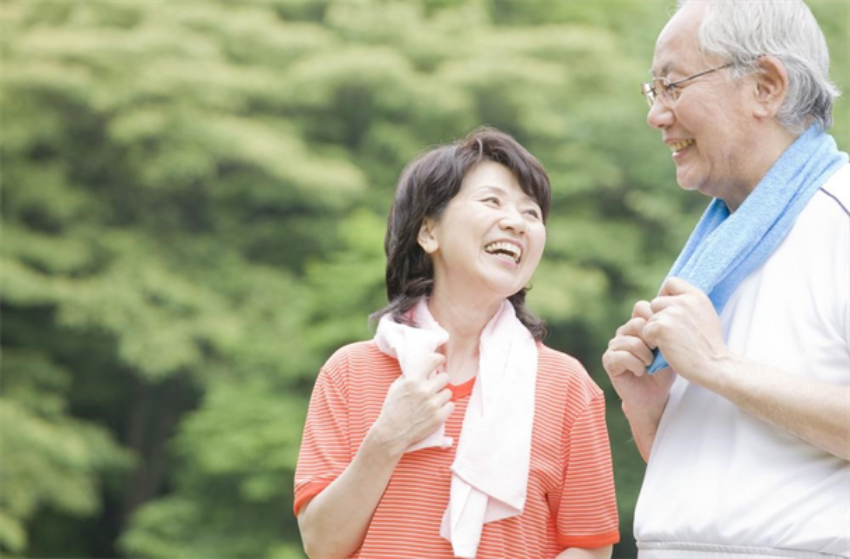
We all want to feel young and be healthy for our entire lives.
In this second post of our series, Uncovering the Japanese Secret to Long Life, you’ll learn how a few simple habits keep Japanese people healthy and active despite a busy schedule.
Everyday activity
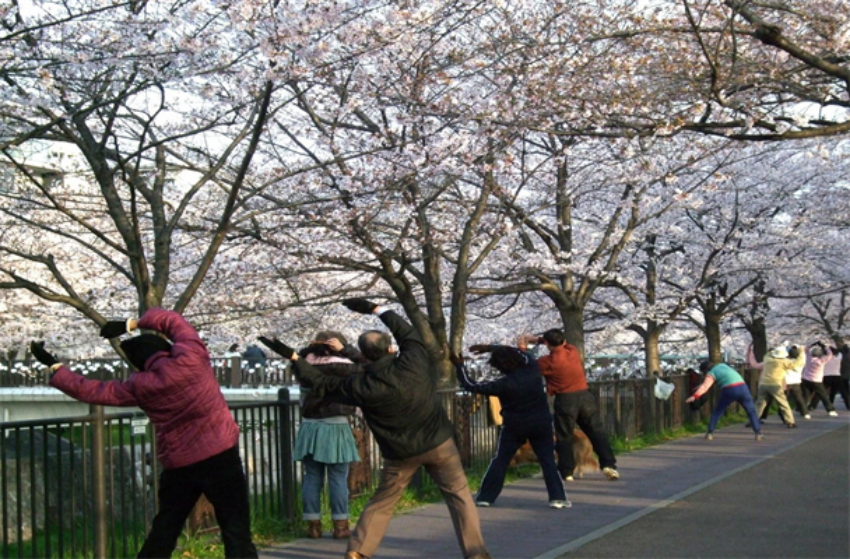
You won’t see the majority of Japanese people sweating it out in the gym or jogging on Saturday mornings. Yet they’re still an amazingly active group.
Why? Because physical activity is a part of their daily life.
From a small age, kids walk to school, bike to friends’ houses, and climb up and down hills as they navigate their city.
An adult’s commute may include a bicycle, a walk to the bus stop, or a trek up and down the stairs of a train station or two. Either way, people get moving.
Kids are encouraged to take part in an extracurricular club through their high school. As such, many kids play sports several nights a week as part of these clubs.
The Japanese have a tradition to get ready for sports or exercise, or just to get the blood pumping in the morning. It’s called rajio taisō or Radio Calisthenics: a stretching exercise timed to music that’s played on the radio every morning. Radio Calisthenics are popular with all ages, and many Japanese seniors will gather in the park to do the exercise together in the morning.
But there’s another cultural tradition that’s very effective at keeping Japanese people healthy.
Warming the body
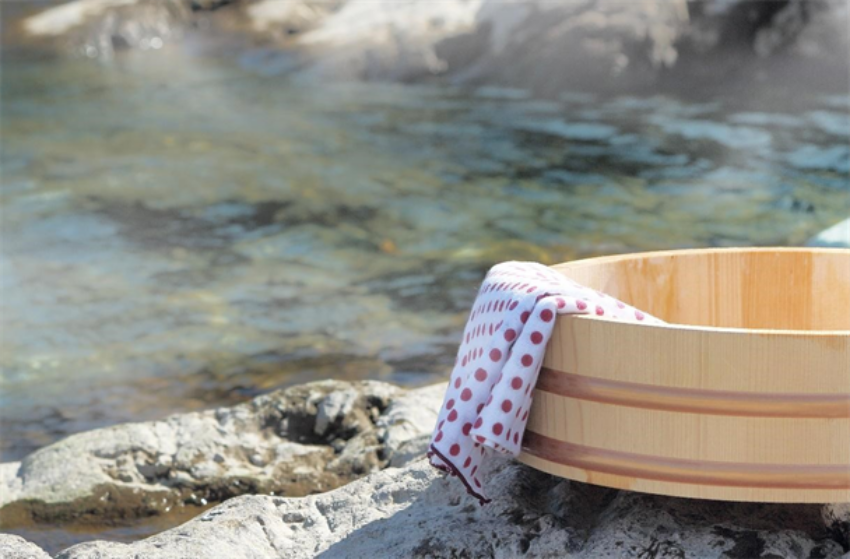
Japanese people are very in tune with their body temperature.
Older Japanese people will remind you to keep your stomach warm to stay healthy. Many attribute digestive problems to stomachs that got too cold.
Because of this, the Japanese have a couple of habits that allow them to maintain the ideal body temperature.
First, for most Japanese, bath time comes before bed. After washing off, many Japanese people will soak in hot water for several minutes. This way, their body won’t be too cold when they get under the covers.
The preference for warmth is even more evident in Japan’s hot spring culture.
Hot springs are both a national pastime and a travel destination. Women with small children and elderly people alike regularly soak in the mineral-rich waters to improve their health.
Soaking in baths like these is said to improve circulation, reduce stress, relieve pain, and help you sleep better. No wonder the Japanese are so healthy!
Another way to stay healthy is getting rid of germs, something the Japanese do exceptionally well.
Staying sanitary
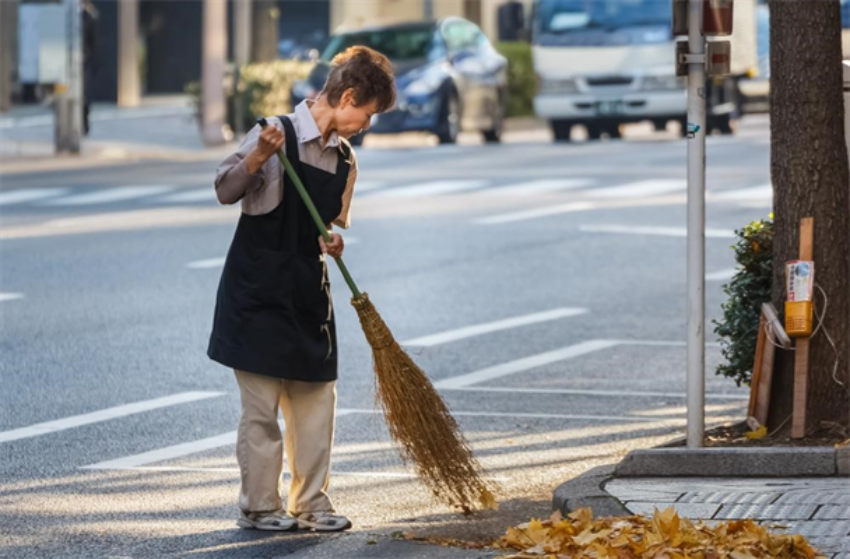
Visitors to Japan are often struck by its cleanliness and orderliness. Indeed, it’s rude to litter or make public areas dirty, and most Japanese people take this very seriously.
Train staff constantly clean bathrooms and de-sanitize escalators, stairways, and train interiors for passengers. You’ll see shop owners sweeping the sidewalk outside of their door and picking up the occasional piece of trash.
These rituals keep germs at bay, even in places that see thousands of people every day. And less germs mean a healthier population.
To further reduce germs, people with colds and fevers wear face masks in public. This prevents the spreading of sickness and disease, especially in crowded cities like Tokyo.
Masks like these are available in stores all across Japan, and you’ll see them everywhere during the cold and flu season.
Staying active in old age
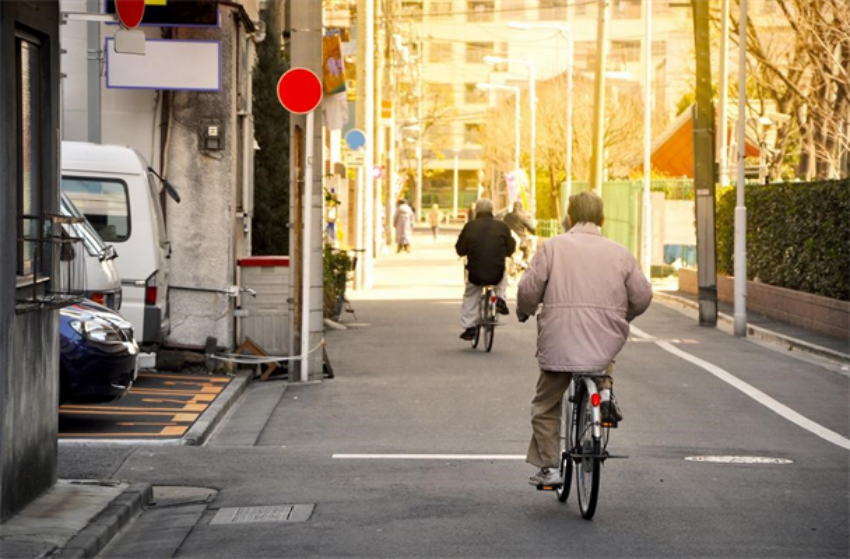
The healthy lifestyle doesn’t stop when Japanese reach old age.
Seniors in Japan love to be active. You’ll often see older people with canes climbing onto the bus or hiking nature trails—they refuse to let their age hold them back!
Older people enjoy playing low-intensity sports together and visiting hot springs, too.
And since working hard is considered a virtue in Japan, many older people like to continue working or volunteering as long as they are able. This keeps their body and mind sharper for longer.
Seniors in Japan also enjoy puzzles and games that exercise their minds and prevent dementia.
Were you inspired by any of these healthy habits? Which one would you like to try?
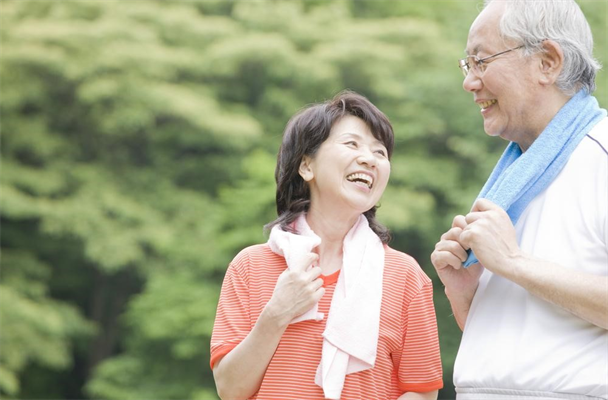
Comments